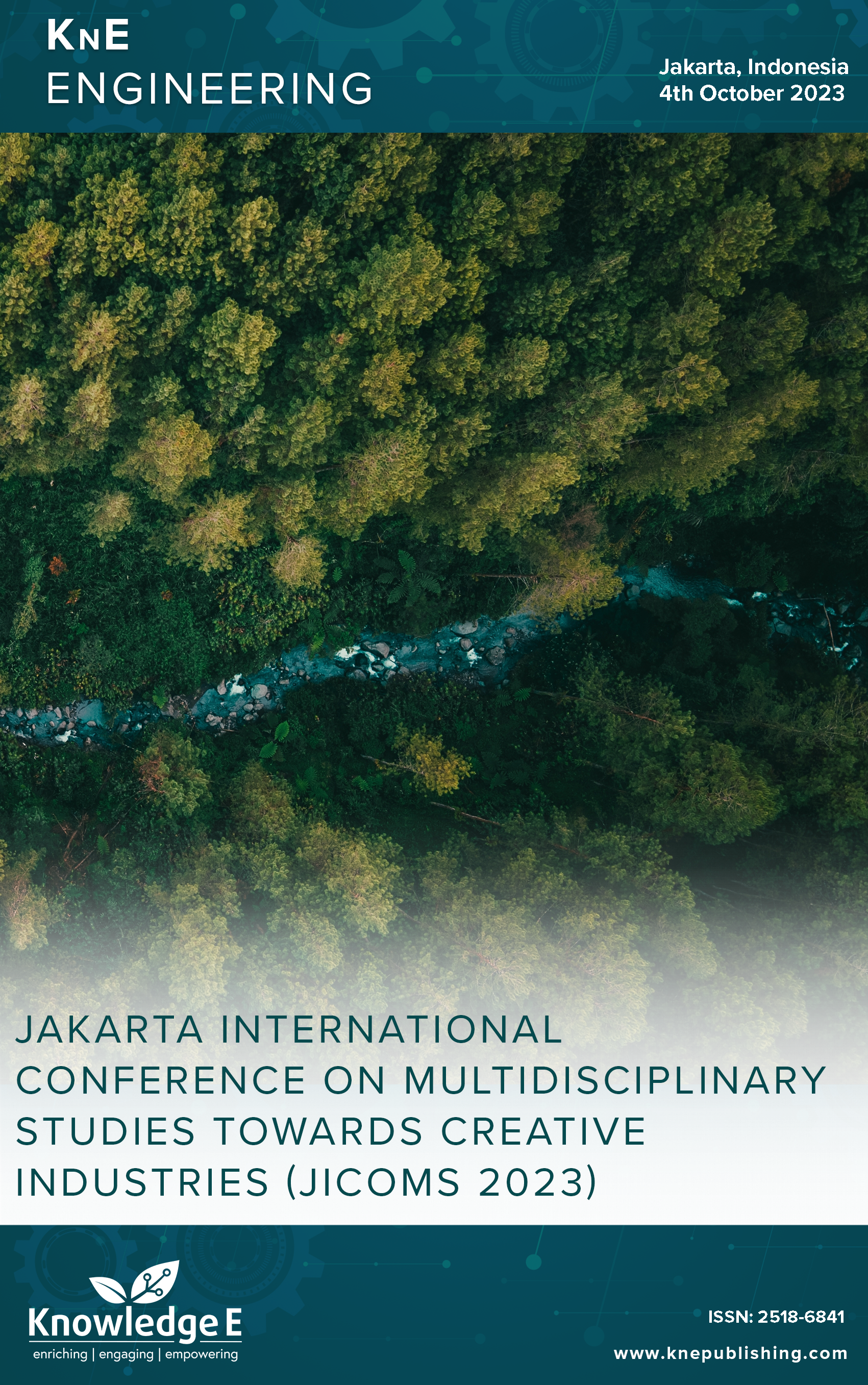The Development of Polymedia Adventure Game As a Digital Promotion Media for Campus Orientation
DOI:
https://doi.org/10.18502/keg.v6i1.15408Abstract
The increasing number of study programs is of course commensurate with the support of the facilities and infrastructure owned by the Creative Media State Polytechnic campus. These facilities were built to support both academic and non-academic activities. This research aims to develop the first 3D game as a digital promotional media orientation on the introduction of the Polimedia campus. Games are a digital medium that continues to develop, especially during the 2019 Covid pandemic. Game is a combination of multimedia and interaction that has proven successful in attracting user attention compared to other digital media. This research was developed with the following stages, namely initialization consisting of game idea research. Research on appropriate game genres, pre-production, production which consist of programming and modeling, and testing including functional testing and testing on users who have the potential to use this game for validation. Based on the data obtained, the overall value of positive perceptions is 70.68%, while negative perceptions weigh 29.32%. This percentage shows that from a user perspective, the game being developed meets user expectations and its objectives. This game is quite capable of motivating users to play and gain a learning experience, exploring campus in a fun way.
Keywords: development, game, promotion, campus, orientation
References
[2] J. Arjoranta, “How to Define Games and Why We Need to,” The Computer Games Journal, vol. 8, pp. 109-120, 2019.
[3] J. Aguado-Delgado, J. M. Gutierrez-Martinez, J. R. Hilera, L. de-Marcos and S. Oton, “Accessibilty in Video Games: a Systematic Review,” Universal Acces in the Information Society, vol. 19, pp. 169-193, 2020.
[4] M. D. Davis and S. J. Brams, “Game Theory mathematics,” 10 February 2023. [Online]. Available: https://www.britannica.com/science/game-theory. [Accessed 12 March 2023].
[5] R. Rastati, “Media Literasi Bagi Digital Natives:,” Jurnal Teknologi Pendidikan, vol. 6, no. 1, pp. 60-73, 2018.
[6] M. Jannah, “student’s social behavior degradation due to sakura school simulator online game,” jurnal pendidikan dasar nusantara, vol. 8, no. 1, pp. 81-89, 2022.
[7] A. Darmawan, M. I. Wardhana and J. Samudra, “Perancangan Game 3D sebagai Pengenalan Lingkungan Kampus Universitas Negeri Malang,” Journal of Language, Literature, and Arts, vol. 1, no. 10, pp. 1341-1357, 29 Oktober 2021.
[8] R. Sugiyono and C. Taurusta, “Pengenalan Kampus II Universitas Muhammadiyah Sidoarjo melalui Game Controller,” Jurnal Informatika dan Sistem Informasi, vol. 2, no. 3, pp. 552-563, 2021.
[9] C. Keller, A. K. Döring and E. Makarova, “Factors Influencing the Effectiveness of Serious Gaming in the Field of Vocational Orientation,” MDPI Journals, vol. 13, no. 1, 2023.
[10] S. Elsom, M. Westacott, C. Stieler-Hunt, S. Glencross and K. Rutter, “Finding resources, finding friends: using analternate reality game for orientation andsocialisation in a university enabling program,” Interactive Learning Environments, pp. 1-16, 2021.
[11] C. Pensieri, A. d. benedictis, F. D. Micco, S. Saccoccia, D. Ivziku, M. Lommi and R. Alloni, “Continuing Education through the Campus Game: A Sustainable GamificationProject to Improve Doctors’ and Nurses’ Knowledge of Quality and Clinical Risk Management,” healthcare, vol. 11, p. 2236, 2023.


